Rejection letters can be a challenging but necessary part of the hiring process. They help maintain a positive relationship between your company and applicants while offering constructive feedback. In this article, we'll explore effective letter templates that strike the right balance between professionalism and empathy. So, if you're looking to craft the perfect rejection letter, keep reading for helpful insights!

Polite Declination
Polite declination of a job offer can be a delicate situation. A thoughtful rejection can help maintain a positive relationship for future opportunities. A well-structured response acknowledges the company's offer, expresses gratitude, and provides a brief explanation for not accepting. A sincere tone emphasizes appreciation for the time and effort invested during the hiring process, while ensuring clarity about the decision not to proceed with the position. This approach fosters goodwill and demonstrates professionalism in the communication.
Gratitude Expression
In the competitive landscape of hiring, expressing gratitude towards candidates following their application process leaves a positive impression. Notifying candidates about their rejection after interviews or assessments maintains professional dignity. This approach also helps uphold the company's reputation as an employer of choice. For instance, utilizing an email format as a follow-up offers an opportunity to recognize the candidate's effort and interest in the position, detailing specific aspects of their qualifications that were impressive. A personalized note can foster goodwill, encourage future applications, and potentially lead to referrals of other candidates in the future. This respectful closure demonstrates the organization's commitment to nurturing professional relations, even amidst disappointing news.
Constructive Feedback
Receiving constructive feedback after a job rejection can be valuable for future applications. Applicants often appreciate insights regarding their interview performance, skillset, and overall fit for the position. Specific examples of strengths, such as effective communication skills during an interview or relevant experience in a particular software, can boost confidence. Noting areas for improvement, like enhancing technical knowledge or tailoring a resume to better align with job descriptions, can guide candidates. Encouragement to apply for future openings at the company can also foster a positive relationship between the organization and the applicant.
Future Opportunities Mention
A rejection letter for a job position can express appreciation, provide feedback, and leave the door open for future opportunities. Dear [Candidate's Name], Thank you for your interest in the [Job Title] position at [Company Name]. After careful consideration, we regret to inform you that we will not be moving forward with your application at this time. We appreciate the effort and time you invested in the interview process. Your skills and experience are commendable, and we encourage you to apply for future openings that align with your qualifications. [Company Name] values talent and potential, and we would be pleased to consider your application again. Best regards, [Your Name] [Your Position] [Company Name] [Contact Information]
Professional Closing
Regrettably, many candidates apply for positions with high aspirations, such as the recently advertised Marketing Manager role at Global Enterprises. The selection process involves evaluating numerous factors including experience level, educational background, and interview performance. While the candidates demonstrated a wide range of skills, only a limited number could be chosen for this competitive role. Global Enterprises values every application submitted, particularly those from highly qualified professionals. Feedback will be provided to help candidates understand the key reasons for the outcome of their applications, ensuring they are well-prepared for future opportunities.

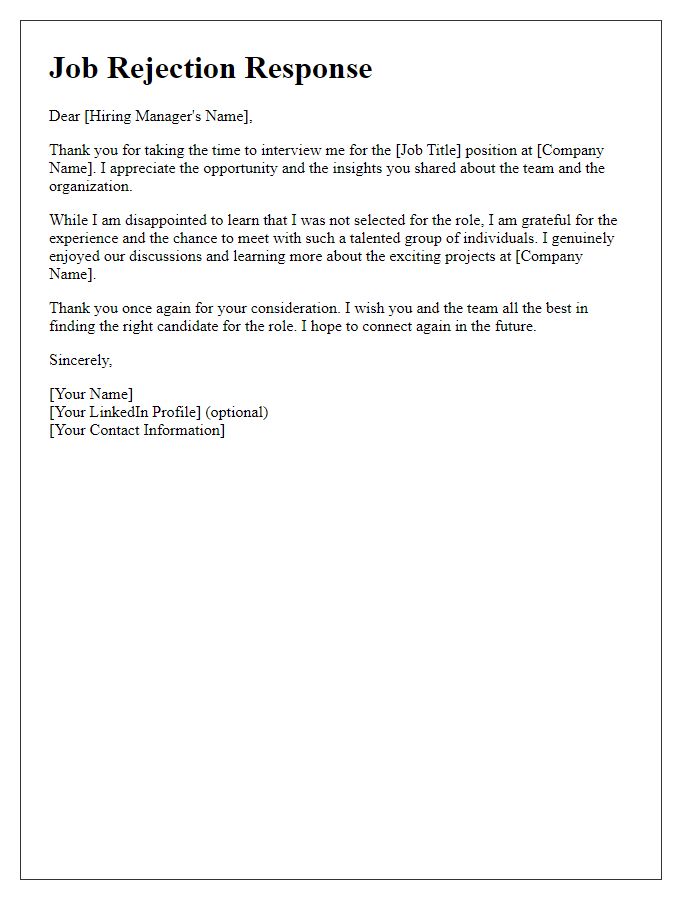
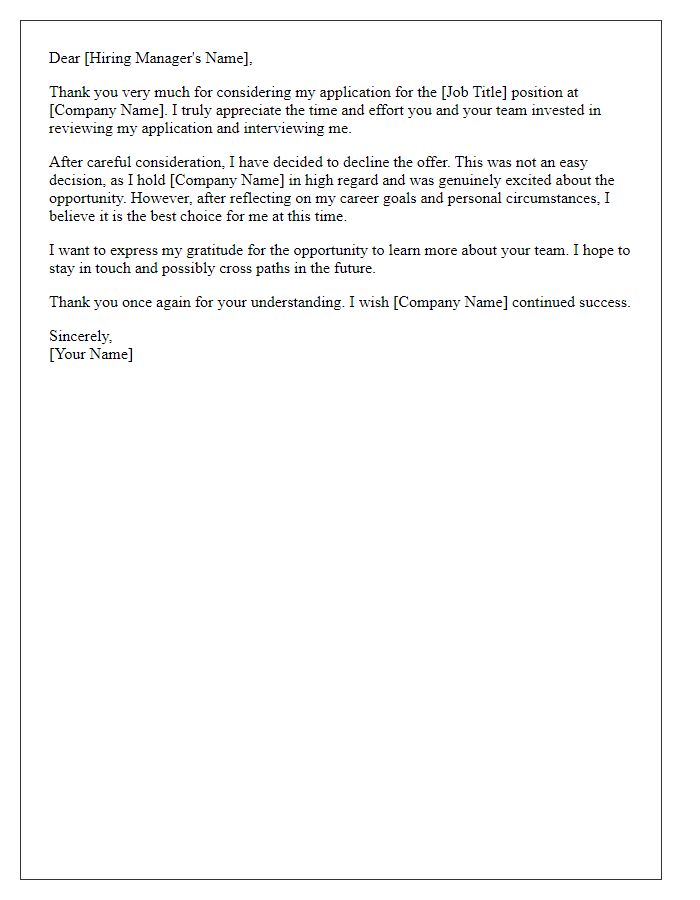
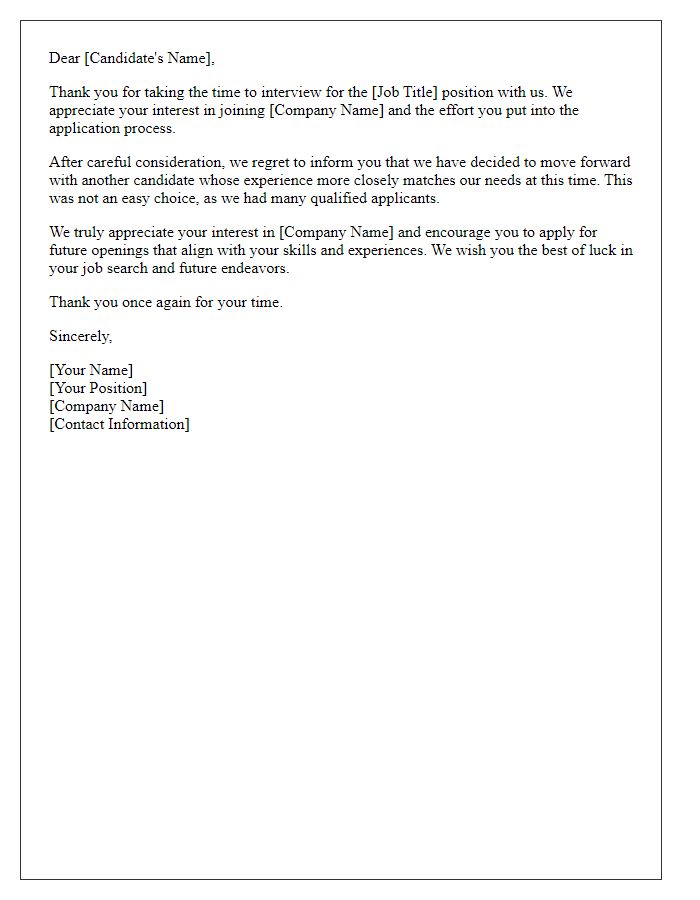
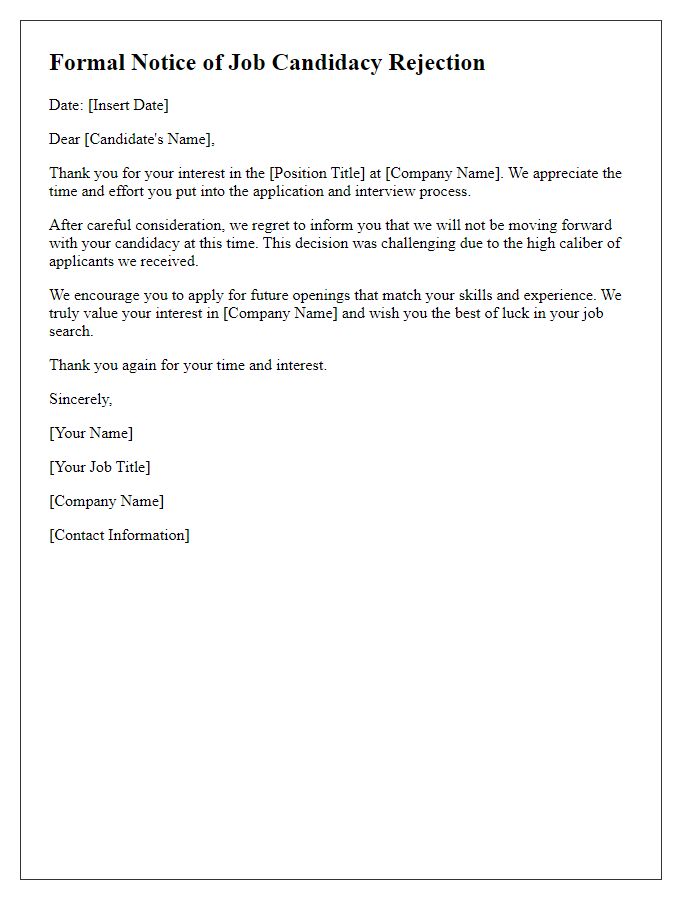
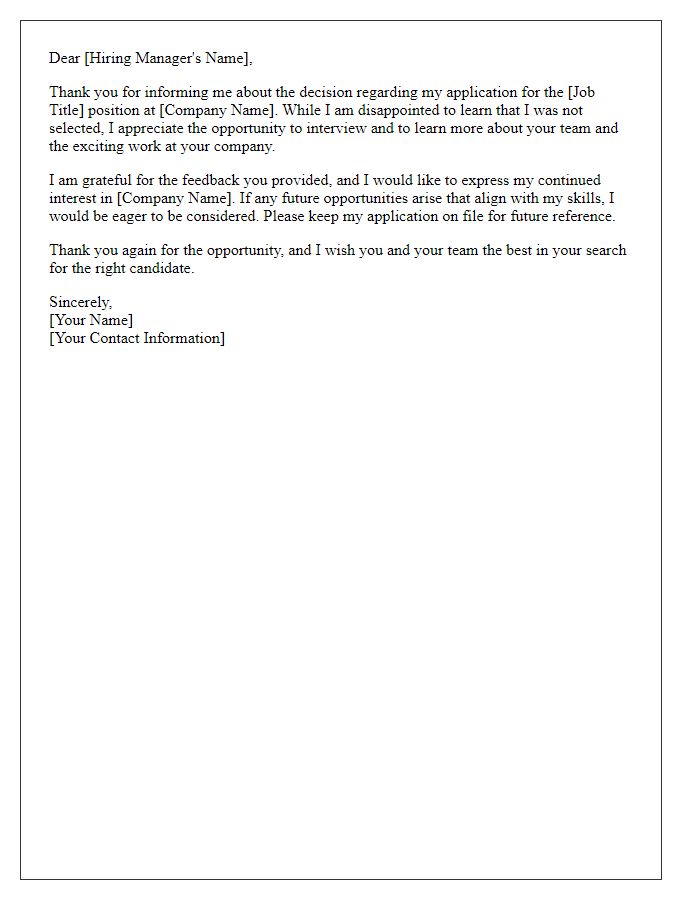
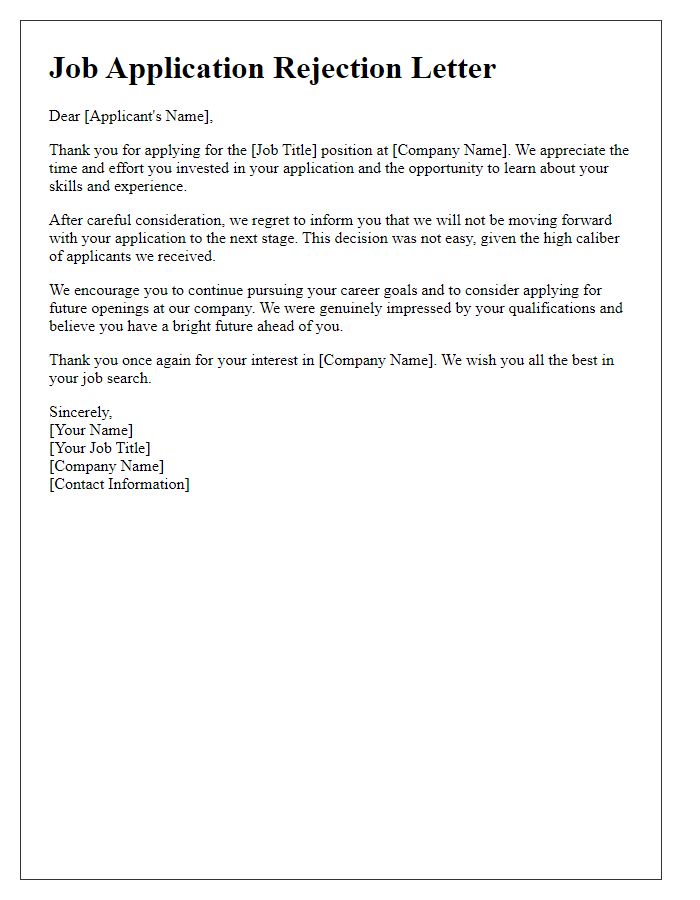
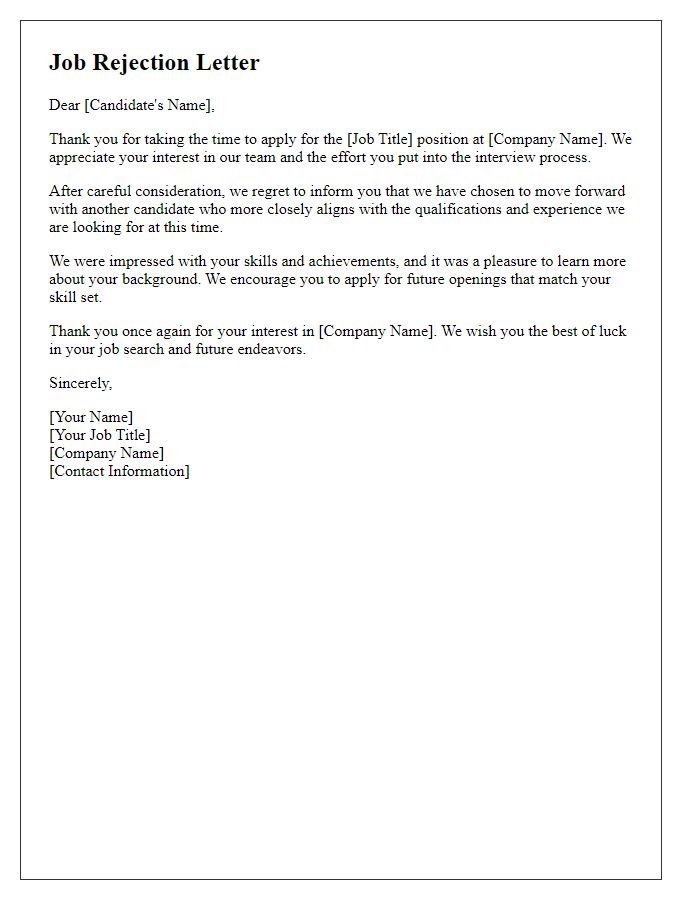
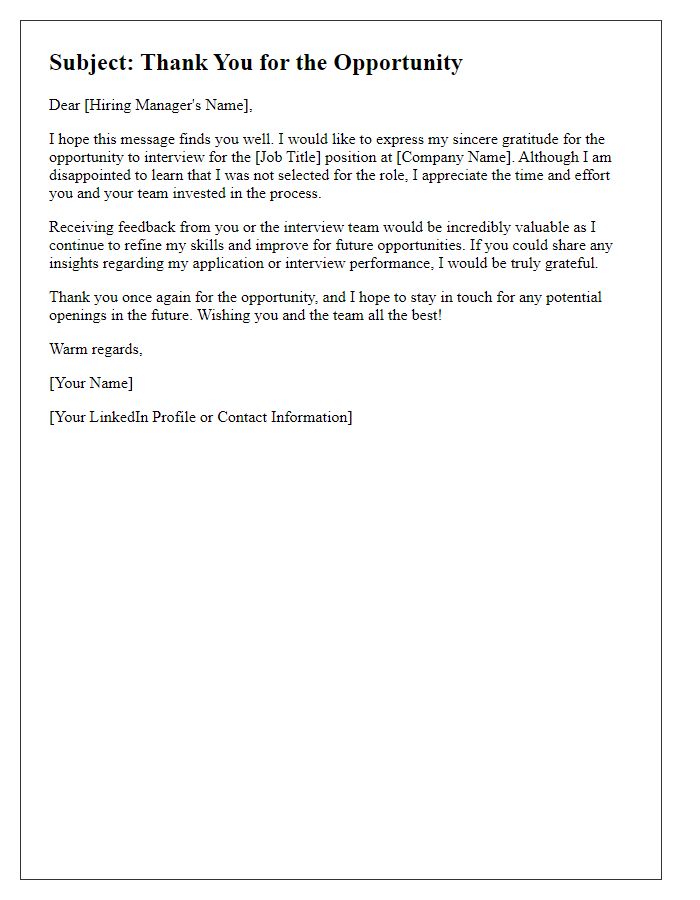
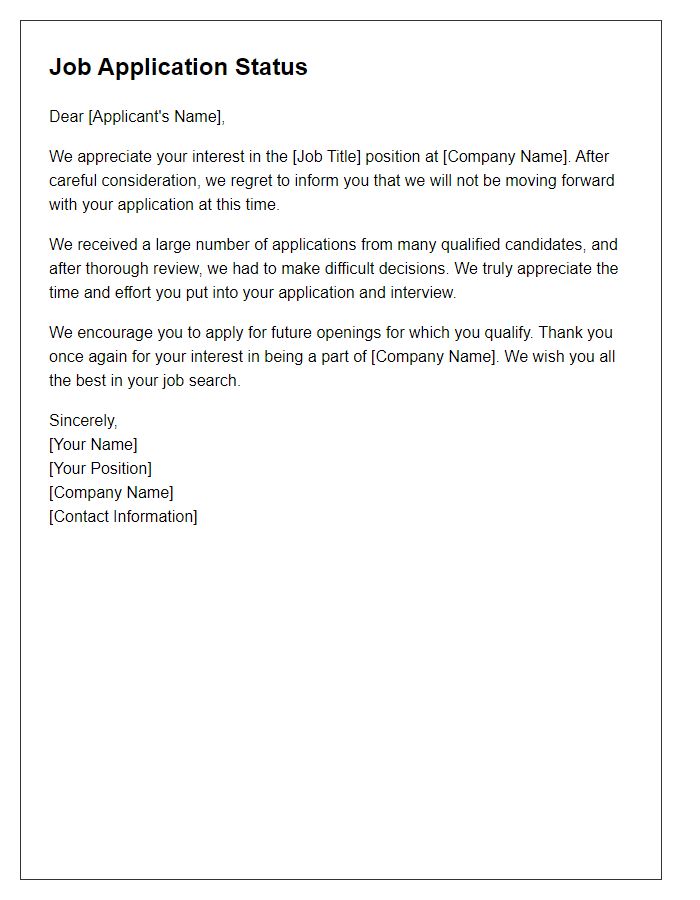
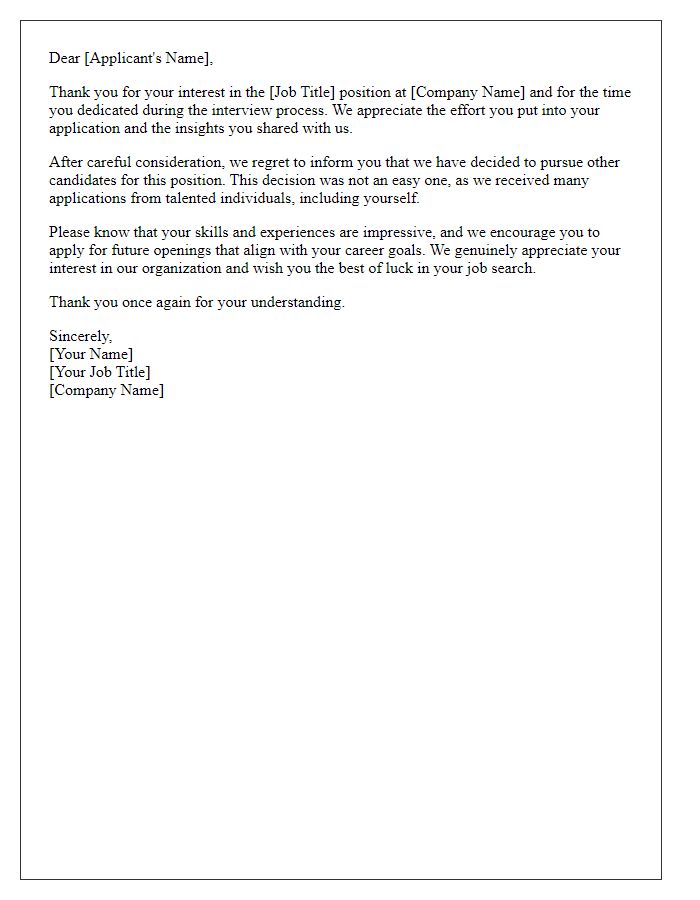

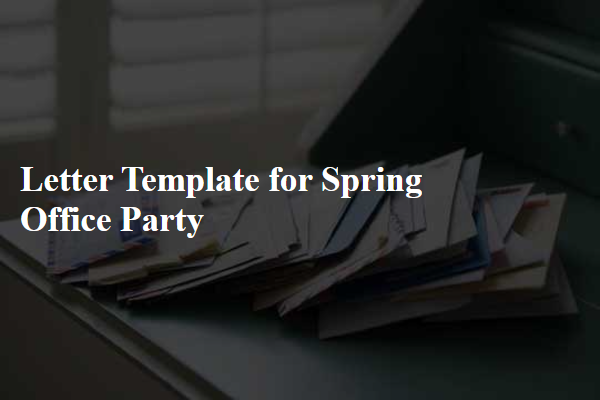
Comments